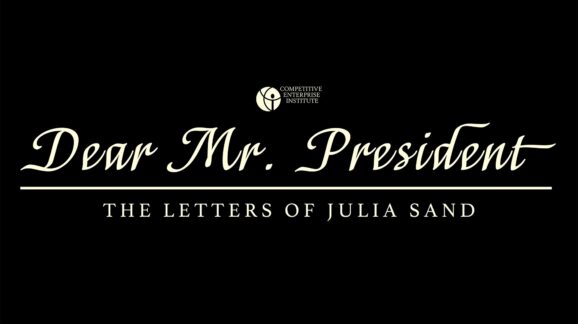Julia Sand – Letter 10
Context
Back in the fall of 1881, one of Charles Guiteau’s prison guards, Sergeant John A. Mason (some records list him as William Mason), attempted to assassinate Guiteau while the prisoner was in his cell. However, the bullet missed Garfield’s killer and Mason was taken into custody. Many Americans sympathized with the guard, and sentiment was rising for President Arthur to pardon Mason. Arthur ultimately did not do so.
Letter 10
April 1882
Hon. C. A. Arthur.
What a peaceful time you must have had when I was not able to read the papers at all! But there is not much rest for the wicked – (which of us is that?) – so I have to trouble you again. There is something more weighing on my mind – that [John] Mason. Please don’t pardon him. For a nation to murder its prisoners, is even more barbarous than to exclude foreigners! Justice & the honor of the country require that that man should be punished. To pardon him, would be giving direct encouragement to lynch law. There is too much of that in some of the states already – we do not want it introduced in the Capitol. Besides, his deed was worse than any lynching. It was his duty to have defended G. [Charles Guiteau] had any danger assailed him – then to turn murderer & attack a perfectly defenseless victim, was as low, cowardly, & contemptible an act as could well have been thought of. This wide-spread sympathy for him – which may have a touch of political trickery underlying it – is a piece of rotten sentimentality. The more severely it is rebuked, the better for the formation of a more healthy public opinion. And yet there are reasons, I can see plainly, why you might feel tempted to grant the pardon. The pressure for it is very strong – a petition over a mile long, with upwards of 350,000 signatures – to give it, would not cost you an effort – no immediate, practical, tangible results would follow – &, at the stroke of a pen, you would make yourself popular with 350,000 fools. But would it not be a good opportunity to stand by the right, purely for the sake of right? Of course some hateful things would be said about you – but would it not be better to endure opprobrium for doing your duty, than for failing in it? And justice comes at last. It is not enough for you simply not to pardon him – try to make those idiots understand why they ought not to want him pardoned – that his conduct was outrageous, that, if it were in time of war, he ought unquestionably to be shot, that, as it is, his sentence is merciful, not harsh. You might also mention that the country at large was not before aware quite how many hundred thousand fools it contained. But you would not dare to say that, would you? You people who live down among the mud & wolves of political strife, have to be polite. But we little white lambs, up on the roof, can say anything we choose, can’t we?
Yours sincerely,
J. I. S.
